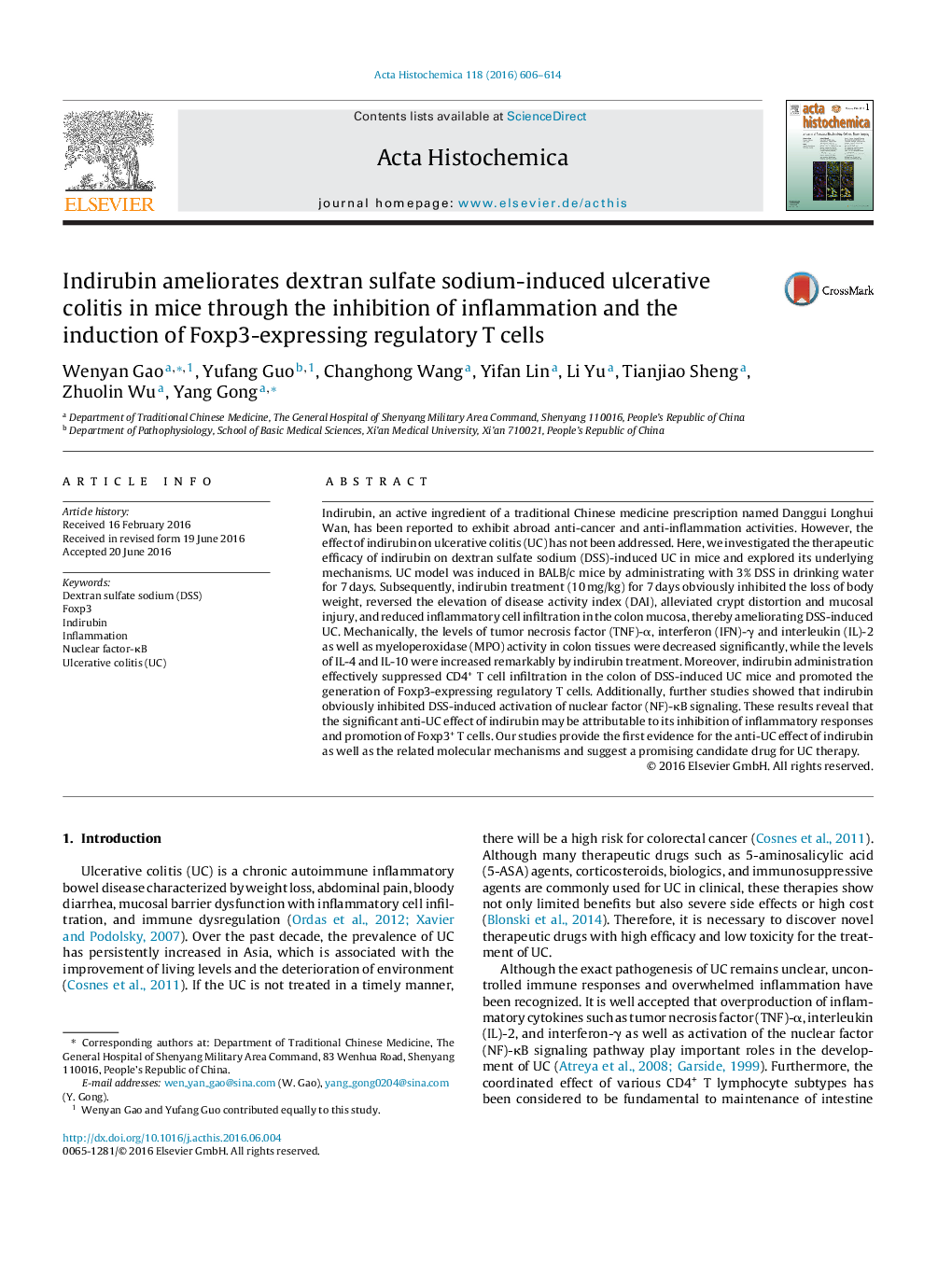| کد مقاله | کد نشریه | سال انتشار | مقاله انگلیسی | نسخه تمام متن |
|---|---|---|---|---|
| 1923289 | 1400220 | 2016 | 9 صفحه PDF | دانلود رایگان |

Indirubin, an active ingredient of a traditional Chinese medicine prescription named Danggui Longhui Wan, has been reported to exhibit abroad anti-cancer and anti-inflammation activities. However, the effect of indirubin on ulcerative colitis (UC) has not been addressed. Here, we investigated the therapeutic efficacy of indirubin on dextran sulfate sodium (DSS)-induced UC in mice and explored its underlying mechanisms. UC model was induced in BALB/c mice by administrating with 3% DSS in drinking water for 7 days. Subsequently, indirubin treatment (10 mg/kg) for 7 days obviously inhibited the loss of body weight, reversed the elevation of disease activity index (DAI), alleviated crypt distortion and mucosal injury, and reduced inflammatory cell infiltration in the colon mucosa, thereby ameliorating DSS-induced UC. Mechanically, the levels of tumor necrosis factor (TNF)-α, interferon (IFN)-γ and interleukin (IL)-2 as well as myeloperoxidase (MPO) activity in colon tissues were decreased significantly, while the levels of IL-4 and IL-10 were increased remarkably by indirubin treatment. Moreover, indirubin administration effectively suppressed CD4+ T cell infiltration in the colon of DSS-induced UC mice and promoted the generation of Foxp3-expressing regulatory T cells. Additionally, further studies showed that indirubin obviously inhibited DSS-induced activation of nuclear factor (NF)-κB signaling. These results reveal that the significant anti-UC effect of indirubin may be attributable to its inhibition of inflammatory responses and promotion of Foxp3+ T cells. Our studies provide the first evidence for the anti-UC effect of indirubin as well as the related molecular mechanisms and suggest a promising candidate drug for UC therapy.
Journal: Acta Histochemica - Volume 118, Issue 6, July 2016, Pages 606–614